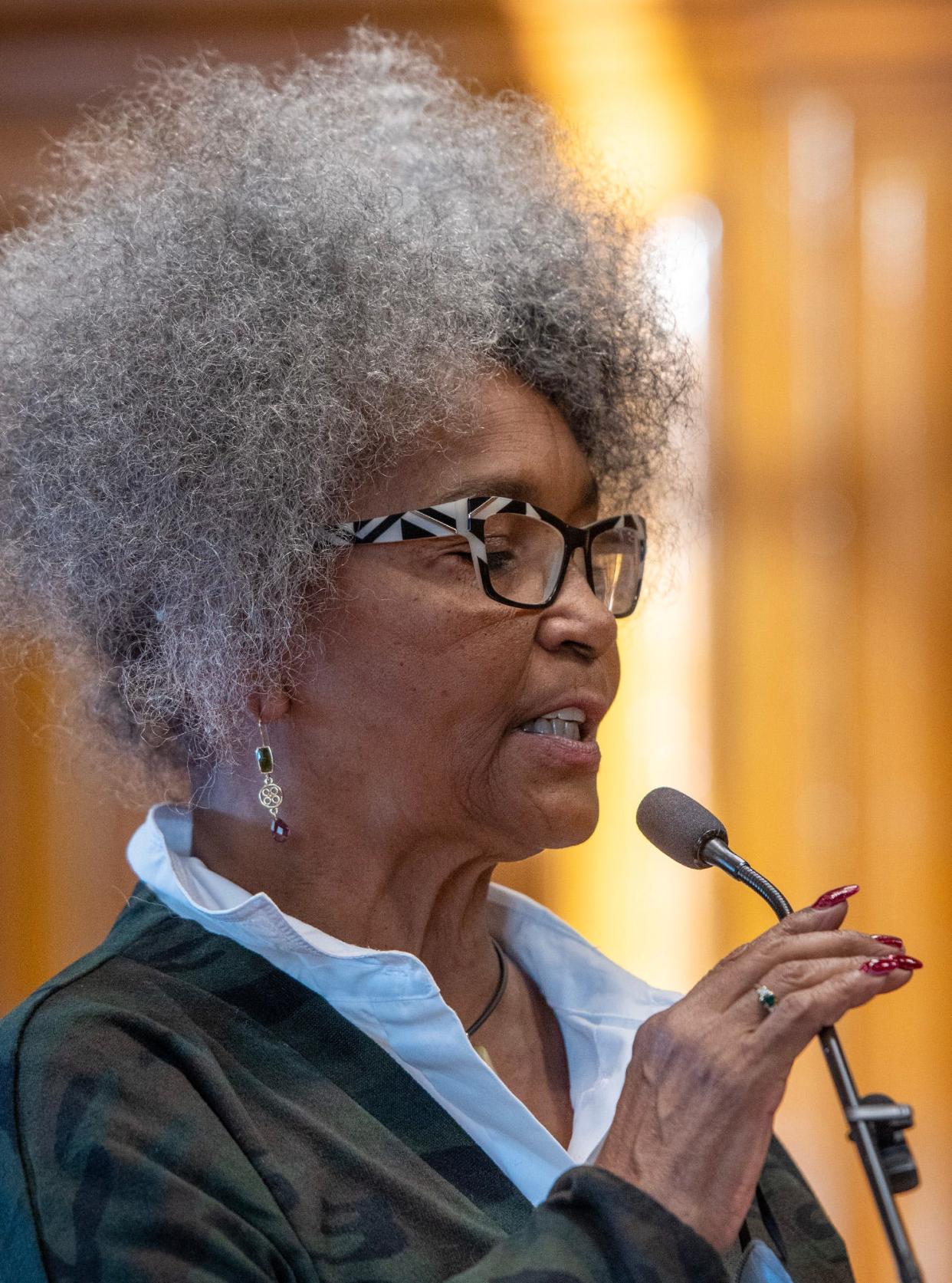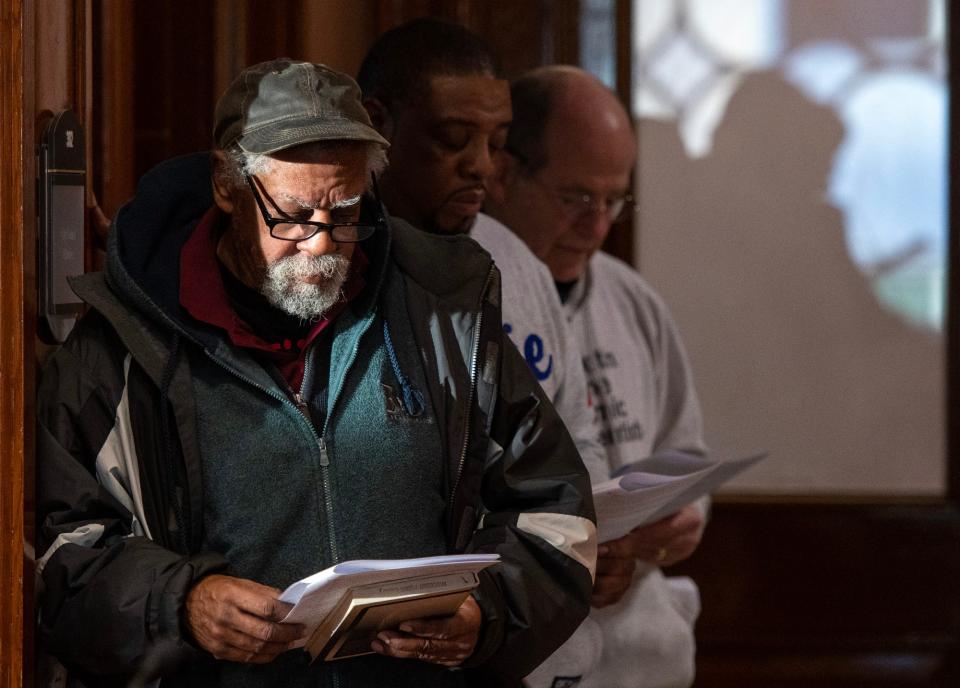Words of power: Frederick Douglass speech read at Worcester City Hall

- Oops!Something went wrong.Please try again later.
WORCESTER - Having been born a slave, Frederick Douglass never received an exact date of his birth, only that it was in February of 1817 or 1818, but he famously adopted Feb. 14 as his birthday, referencing how his mother would call him “her little Valentine.”
Yesterday, in keeping with Black History Month’s theme this year of resistance against oppression, Worcester residents came together to celebrate one of history’s most famous abolitionists on his adopted birthday, with a reading of his famous July 5, 1852, speech.
Preceded with a performance by Worcester artist Lil’ Rennie, the reading started with Mayor Joseph M. Petty and City Manager Eric D. Batista. Prominent Worcester community members took turns reading from Douglass’ seminal speech in the Esther Howland Chamber at City Hall.
Past, future sing together at Black History Month concert

Justice for all
Though the reading traditionally takes place around the Fourth of July, doing so during Black History Month as part of a larger program is an opportunity to “talk about the context in which Douglass wrote this speech,” said Rob Jones, a Worcester resident and one of the readers, who also led a discussion after the reading.
“There is a cognitive dissonance with the Constitution and Bill of Rights,” he said. “As a document, it’s wonderful - if it applies to everyone,” he added. “But when it was written, the Founding Fathers did not look at enslaved Africans as people.”
Despite having been written over a century ago, the issues described in Douglass’ speech still hold true, Sha-Asia Medina of The Village Worcester neighborhood center said.
“His words are way too relevant today,” she said. “It’s a reminder that there is still a lot of work to be done but we can’t let it paralyze us with fear and negativity. It’s important for us to reflect on this and do our part to move everything forward.”
“Being able to speak to the current realities that you’re living in is the first step of moving people forward,” said at-Large City Councilor Khyrstian King. “And this particular speech reminds you of that, assessing what it is to be an American while being a Black American.”
Words of power
Last month, the United States Postal Service issued the 46th nationwide stamp in its Black Heritage series, honoring writer Ernest J. Gaines. The stamp was dedicated to Medina and her mother, Parlee Jones, for their work in the community.
“We’re honored that the United States Postal Service acknowledged the village and dedicated a stamp to such an amazing and important writer in Black history and culture,” said Medina. “We hope that more people learn about who he is and all the amazing things he accomplished.”
Gaines is best known for his 1971 novel “The Autobiography of Miss Jane Pittman,” narrated by a 110-year-old former slave, and his 1993 novel “A Lesson Before Dying.”
Douglass and Worcester
“What’s interesting to me about Douglass is he was part of the Worcester scene in the 1830s,” said Bill Wallace, executive director of the Worcester Historical Museum.
Douglass was part of the Worcester Anti-Slavery Society, visiting the city multiple times and speaking at Mechanics Hall and City Hall.
“Worcester was a very solidly anti-slavery community,” said Wallace. “It’s where slavery began to be outlawed in Massachusetts with the Walker decision back in the 1780s.”
“Douglass’ connection to Worcester is not as well known as it could be,” said King. “Hopefully in the future, that kind of connection to Worcester can be further realized.”
This article originally appeared on Telegram & Gazette: Resistance against oppression: Frederick Douglass reading at City Hall

